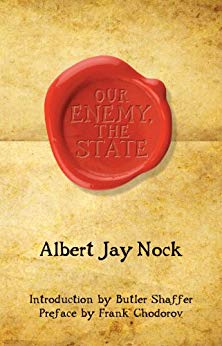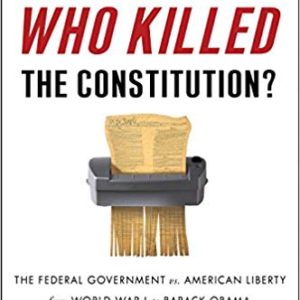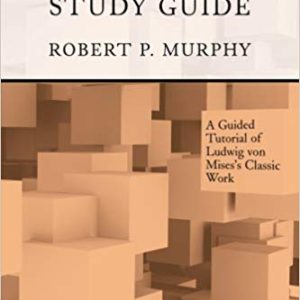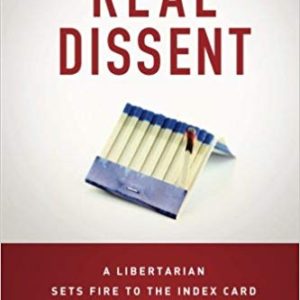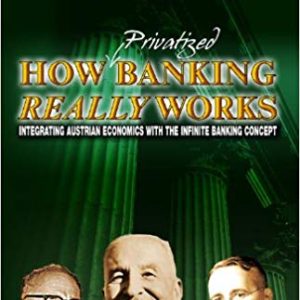Description
If there were literary justice in this world, Albert Jay Nock (1870–1945) would be considered alongside the great men of letters of the twentieth century. His Memoirs of a Superfluous Man (1943) is a magnificent biographical achievement that leaves a permanent impression on readers. His Our Enemy, the State (1935) is a major contribution to political theory that remains the classic and essential delineation of society and state.
His biography Jefferson (1926) is regarded by scholars as among the finest ever written, providing special insight into the radical world of the eighteenth century. His hundreds of essays, collected in books such as On Doing the Right Thing (1928) and Snoring as a Fine Art (1958), sparkle with original style and wisdom.
Why is he not widely known?The answer can only be due to his political and economic thought, which was radically antistatist in a century when the state aspired to omnipotence and omniscience. Nock’s vision of the social order was blessedly free of such foolishness. He saw society as the product of exchange, cooperation, and the individual working his way through the great problem of scarcity, and while the results are not perfect, there is nothing the state can do to improve society; indeed, the state distorts and finally strangles every bit of civilization it touches.
In a society without the state, for example, the “court of tastes and manners” would be the thing that guides the operation of society, and this “court” would have a much larger role in society than law, legislation, or religion. If such a court were not in operation, because people are too uncivilized or too ill-educated to maintain it, there was nothing the state could do to uplift people. No matter how low a civilization is, it can only be made to go lower through state activity.
Nock was born in Scranton, Pennsylvania. His father was a steel worker and an Episcopal prelate. Albert received the best education possible for that generation, complete with a thorough knowledge of classical languages and literature. He later wrote
I am profoundly thankful that during my formative years I never had contact with any institution under State con-trol; not in school, not in college, nor yet in my three years of irregular graduate study. No attempt was ever made by anyone to indoctrinate me with State-inspired views—or any views, for that matter—of patriotism or nationalism. I was never dragooned into flag-worship or hero-worship, never was caught in any spate of verbiage about duty to one’s country, never debauched by any of the routine devices hatched by scoundrels for inducing a synthetic devotion to one’s native land and loyalty to its jobholders. Therefore when later the various aspects of contemporary patriotism and nationalism appeared before me, my mind was wholly unprepossessed, and my view of them was unaffected by any emotional distortion.
He graduated from St. Stephen’s College (now known as Bard College), and left for seminary to become an ordained minister. He later left the ministry for full-time journalism and writing, joining the staff of The Nation.
He left The Nation to be the founder of the original Freeman magazine that ran from 1920 to 1924. It was here that he first fleshed out his identity as a “radical,” which he distinguished from “liberal.” The radical, he wrote, does not busy himself with political reform movements but rather seeks a total restoration of the natural society of liberty. In those days, he might have considered himself a man of the Left, since it was the Left that most strongly resisted the rise of the corporate warfare state and resisted the increase of power over the individual.
In this respect, he was not unlike his friend H.L. Mencken and many other members of what was later called the Old Right generation of antistatist thinkers. It was the New Deal that changed everything. Consistent with Nock’s argument against the management of society by centralized power, he resisted New Deal planning but found himself alone among the intellectuals of the Left, and, indeed, was soon to be considered on the Right. He later wrote with disgust of how the Left supported the income tax and the direct election of senators. He charged that those would “straightway ease our political systems into collectivism as soon as some Eubulus, some mass-man overgifted with sagacity, should maneuver himself into popular leadership.”
Unlike his former friends on the Left, Nock understood that there can be no freedom without economic freedom and that the state is the enemy of economic freedom.
In a spirit of sheer conscious fraud, the State will at any time offer its people “four freedoms,” or six, or any number; but it will never let them have economic freedom. If it did, it would be signing its own death warrant, for as Lenin pointed out, “it is nonsense to make any pretence of reconciling the State and liberty.”
It is remarkable to think that a man with these views would be invited to give a series of high-prestige lectures on education at the University of Virginia. But that is what he did in 1932. His book The Theory of Education in the United States created a sensation by condemning the effects of government intervention on education. It has vastly increased the number of people enrolled in school, he said, but it has demolished the structure of education as it was once known. And truly, his presentation of the difference between true education and mere training is an eye opener for any modern American.
Nock was a passionate opponent of war, and, in fact, his first book was an attack on World War I. He saw it in the same way he saw economic intervention, as an attack on civilization itself, which has a hard enough time sustaining itself in absence of totalitarian control. He opposed the second world war for the same reason.
Nock was not optimistic about the prospects of liberty but he saw a way out for the individual. The answer is to surround yourself by great ideas and a community of people who share them, and work toward preservation of all that is good and great. “As a general principle, I should put it that a man’s country is where the things he loves are most respected. Circumstances may have prevented his ever setting foot there, but it remains his country.”
Nock fought against the state with the most powerful weapons he had, his mind and his pen. Pass the works of Nock on to a 20-year-old student and you stand a good chance of arming him against a lifetime of nonsense, whether it comes from the tedious Left that loves redistribution and collectivism or the fraudulent Right that is completely blind to the impossibility of reconciling war and nationalism with the true American spirit of freedom.

